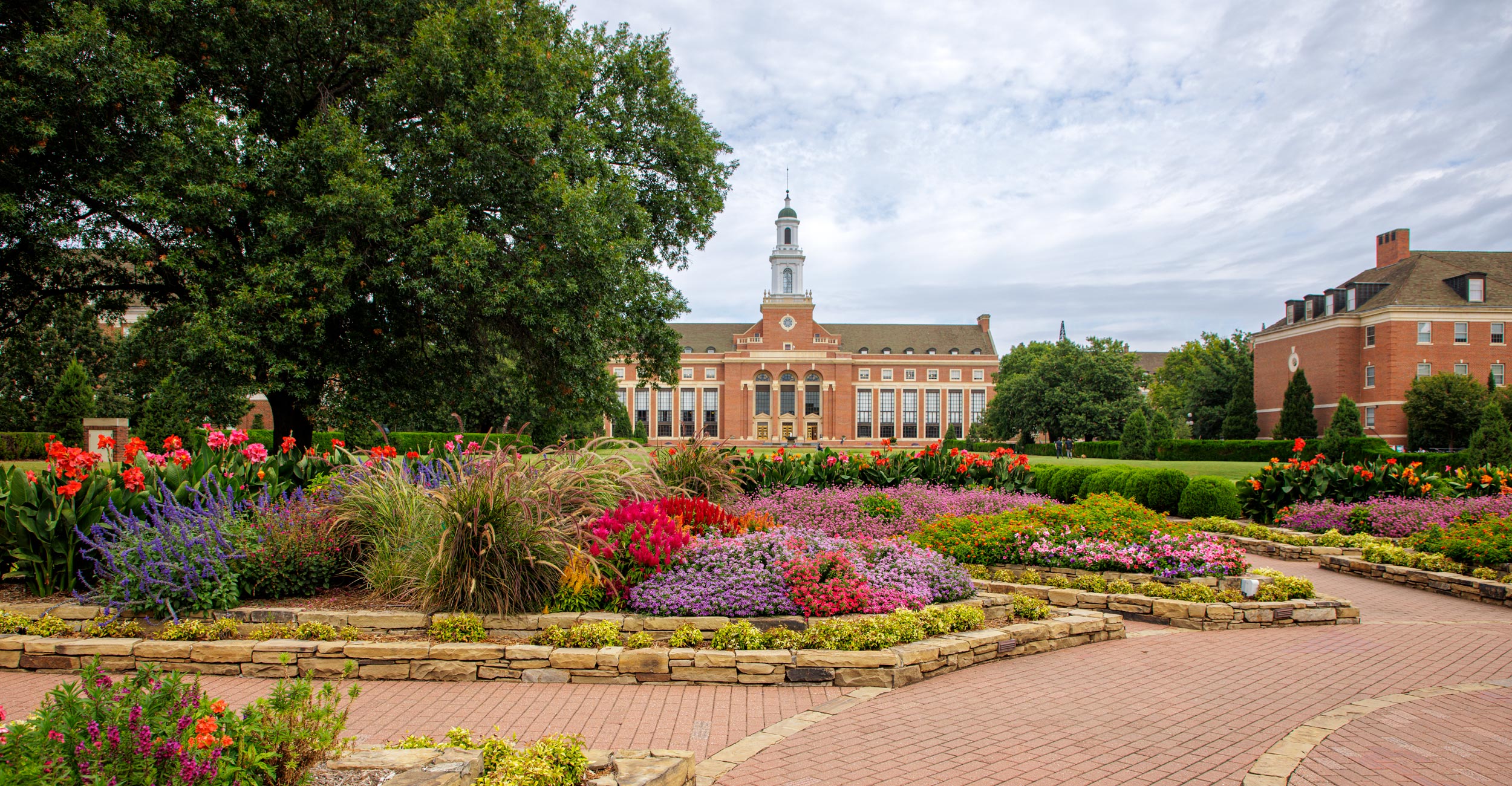
5 Niblack Scholars complete research experience
Tuesday, July 15, 2025
Media Contact: Sydney Trainor | Communications and Media Relations Specialist | 405-744-9782 | sydney.trainor@okstate.edu
For college students, deciding on a future career can be daunting.
Completing four years of undergraduate studies is challenging. While some students know they want to continue their education with a graduate degree, others seek opportunities to gain insight into their future.
At Oklahoma State University, the Niblack Scholars Program offers undergraduate students research experience beyond the traditional classroom.
This three-semester program helps students choose a career path, improves their likelihood of success in the workforce, and helps them determine if graduate school is the right choice.
As a comprehensive research university, OSU is uniquely positioned to offer such opportunities.
Thanks to the generosity of Dr. John Niblack, this award aims to give outstanding students an early appreciation for scientific research in a laboratory environment.
These undergraduate students receive funding to pursue research that interests them and pays for a mentor to assist them. Students work two to five hours per week with their mentors in hands-on laboratory environments during the fall and spring semesters and at least 20 hours per week in the summer.
This summer, five scholars are finalizing their research and preparing to present their findings to Niblack in October.
William Ertl
Q: What is the focus of your NRS research project?
A: Originally, the focus and objective of my project was to transform a key protein in a mutated bacteria that’s involved in photosynthesis and make specific changes to its DNA that would alter its function, allowing us to study what changes the cells could make to prevent them from dying. However, problems with the transformation of cells propelled us to explore alternate avenues to address this problem. Because of this, we were able to discover a previously uncharacterized putative symbiont that we believe has helped our mutant survive. How it does this is not specifically known to us right now, but we’re continuing to explore all possibilities how it does this as well as trying to transform the cells with the symbiont in mind
Q: How has participating in the NRS program impacted your college experience?
A: I can confidently say that the Niblack Research Scholars program has changed my life. Not only has it given me the skills and laboratory experience to excel in future research beyond Oklahoma State University, but it’s built my critical thinking and problem-solving skills. It’s also given me the ability to help support my academic success monetarily, which has helped me become a better researcher and person. If I had the chance to go back and do it all over again, I’d do it in a heartbeat no matter how hard it got.
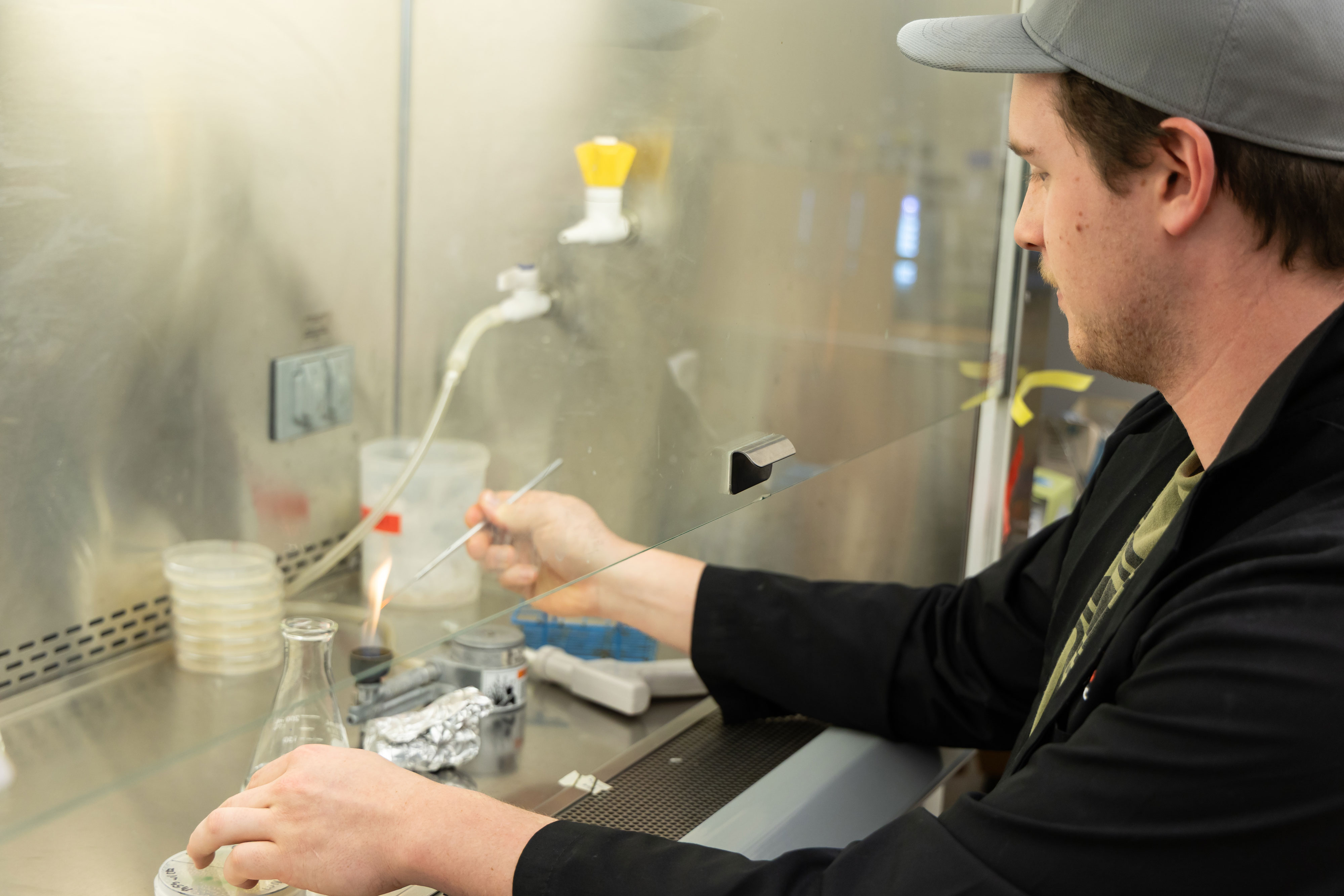
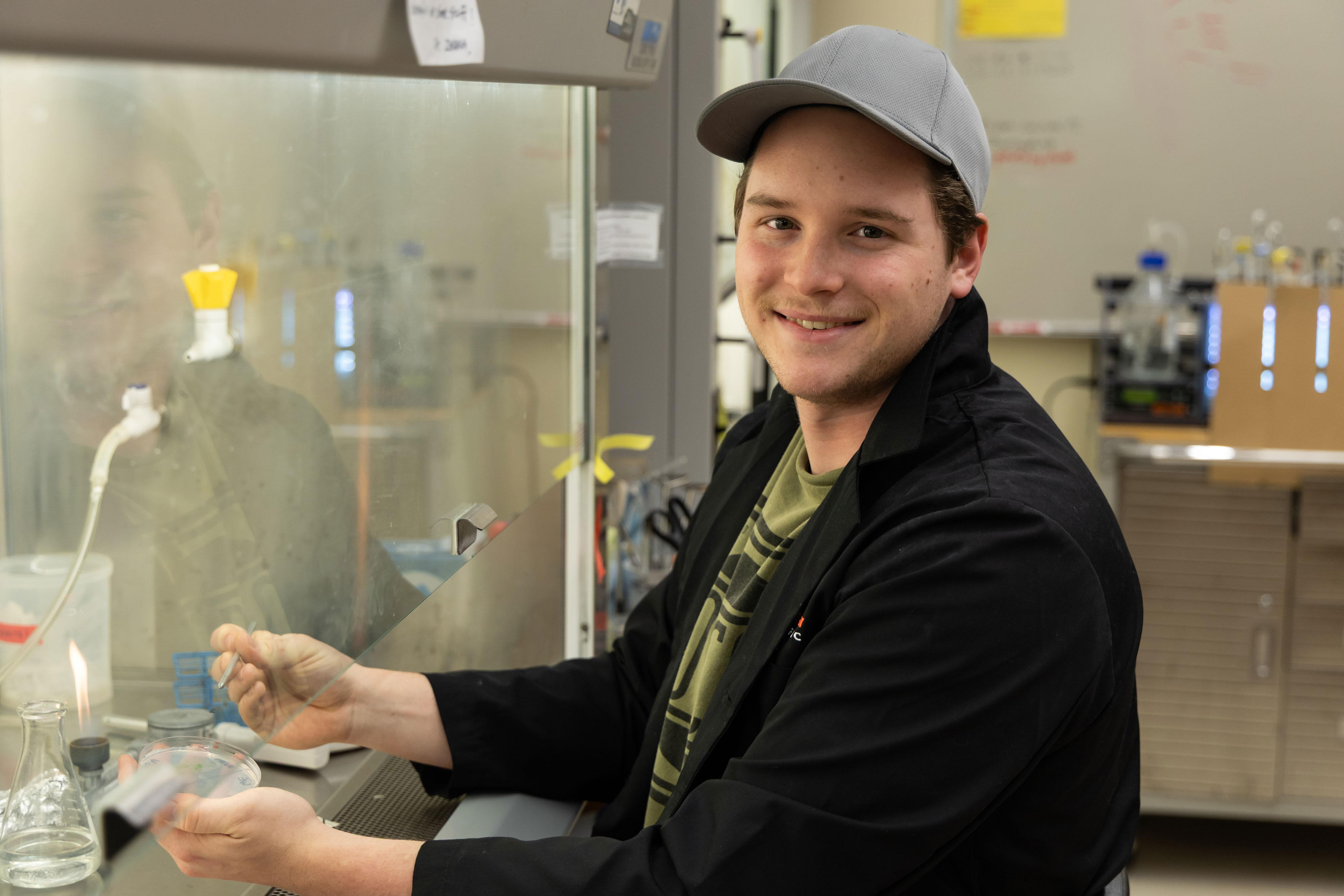
Q: What advice would you give those considering an undergraduate research opportunity?
A: Do it. Working in a research lab has been a life-changing experience for me, and anyone that wants to try research I would encourage to reach out to a professor about getting involved. Even if it’s hard, even if you don’t like it, it’ll give you appreciation and insight into how diverse research is. I never thought I would be studying photosynthesis, yet it’s become a core aspect of what I want to do in the future.
Q: Why did you choose OSU?
A: Honestly, I was a life-long OU fan before I came to Oklahoma State — it’s always pistols firing. After applying and getting rejected from OU, a friend of mine talked about OSU and their admissions process. I took a chance on the application, got accepted, and eventually after touring fell in love with the campus and the school. I owe all my collegiate success to OSU, without which I’d probably be working 9-5 back at home.
Q: What has been your most memorable part of OSU so far?
A: The experience. OSU is an experience, and you get out what you put into it. Choosing OSU over OU was a hard decision at first, but one that I’ll never regret. It’s given me life-long friends, encouraged me, developed my passion for helping others, and contributed to my decision to pursue future education. I’ve made the most out of every situation, and it’s the experiences I’ve had along the way that have made all the difference. It’s like they say, it's not about the destination but about the journey you take to get there. That experience is what I’ve come to cherish the most at OSU
Q: What are your future goals?
A: I’ll be pursuing an MD degree at the OU College of Medicine in Oklahoma City and hoping to continue contributing to scholarly efforts through research into metabolism and genomics.
Jorja Ford
Q: What is the focus of your NRS research project?
A: We are looking at different types of supplementations to increase the amount of estrogen in the brain to combat symptoms of Alzheimer’s disease. More than 70% of Alzheimer’s disease patients are women, with studies showing this could be linked to the drop in estrogen during menopause.
Q: How has participating in the NRS program impacted your college experience?
A: It has allowed me to pursue what I truly love further: research. Being in the program has also introduced me to like-minded individuals and mentors who have positively impacted my life.
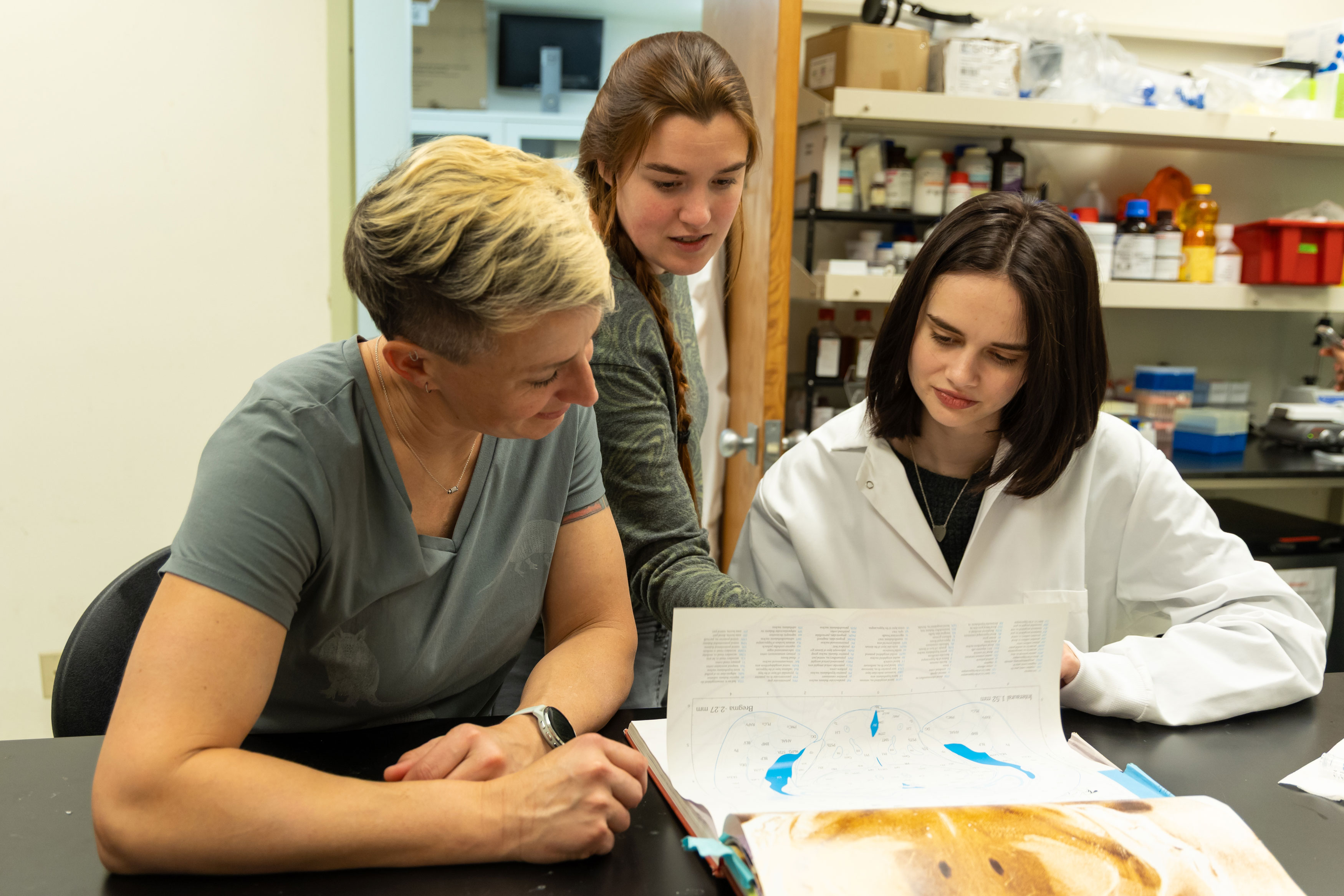
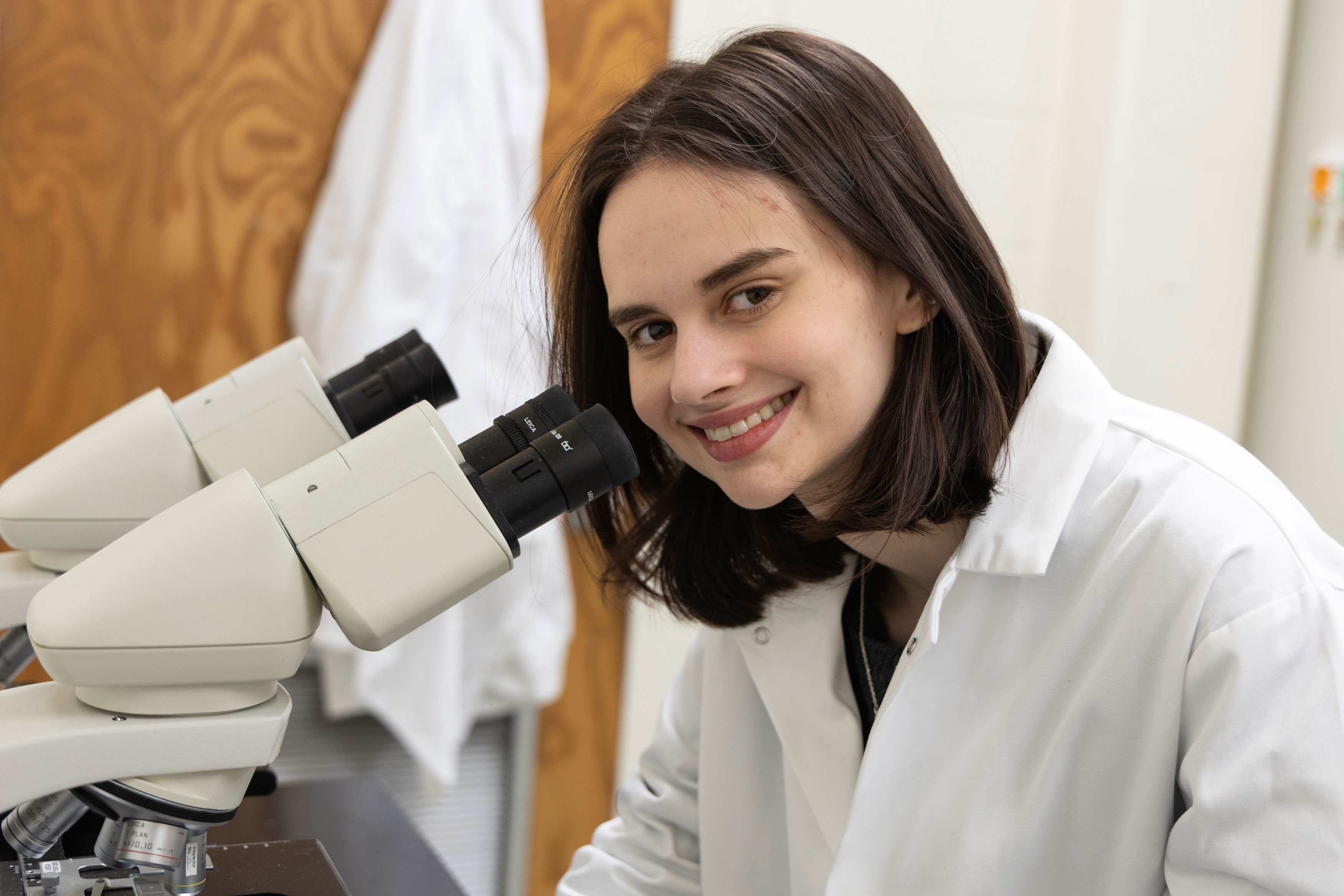
A: I would tell them to go for it. OSU is one of the best institutions to pursue undergraduate research, and our faculty is also incredible to work with. They truly care about students succeeding in pursuing their interests.
Q: Why did you choose OSU?
A: I chose OSU because it truly felt like home. I grew up going to OSU games, and the Cowboy family has always made me feel welcome.
Q: What has been your most memorable part of OSU so far?
A: The most memorable part of OSU was definitely my experience in the International Genetically Engineered Machines team (iGEM). I was able to present research in Paris, France, twice, and participate in synthetic biology research. This allowed me to make lifelong connections and meet people from around the world.
Q: What are your future goals?
A: I plan to attend graduate school and get my Ph.D. with a focus on synthetic biology. I am currently applying to programs in Japan, Germany, and the United Kingdom.
Carsyn Gragg
Q: What is the focus of your NRS research project?
A: The focus of my project is to understand the effects of the Pyrroloquinoline quinone (PQQ) compound on skeletal muscle and blood glucose levels. I have worked in-vivo and in-vitro to understand the effects of the PQQ compound and how it might assist individuals affected by diabetes.
Q: How has participating in the NRS program impacted your college experience?
A: Participating in the Niblack Research Scholars program has completely changed my college experience. Through my project which was made possible by the program, I have discovered my love for working in a laboratory setting and for working with the endocrine system. This has encouraged me to broaden my horizons for potential medical field careers and look forward to new opportunities.
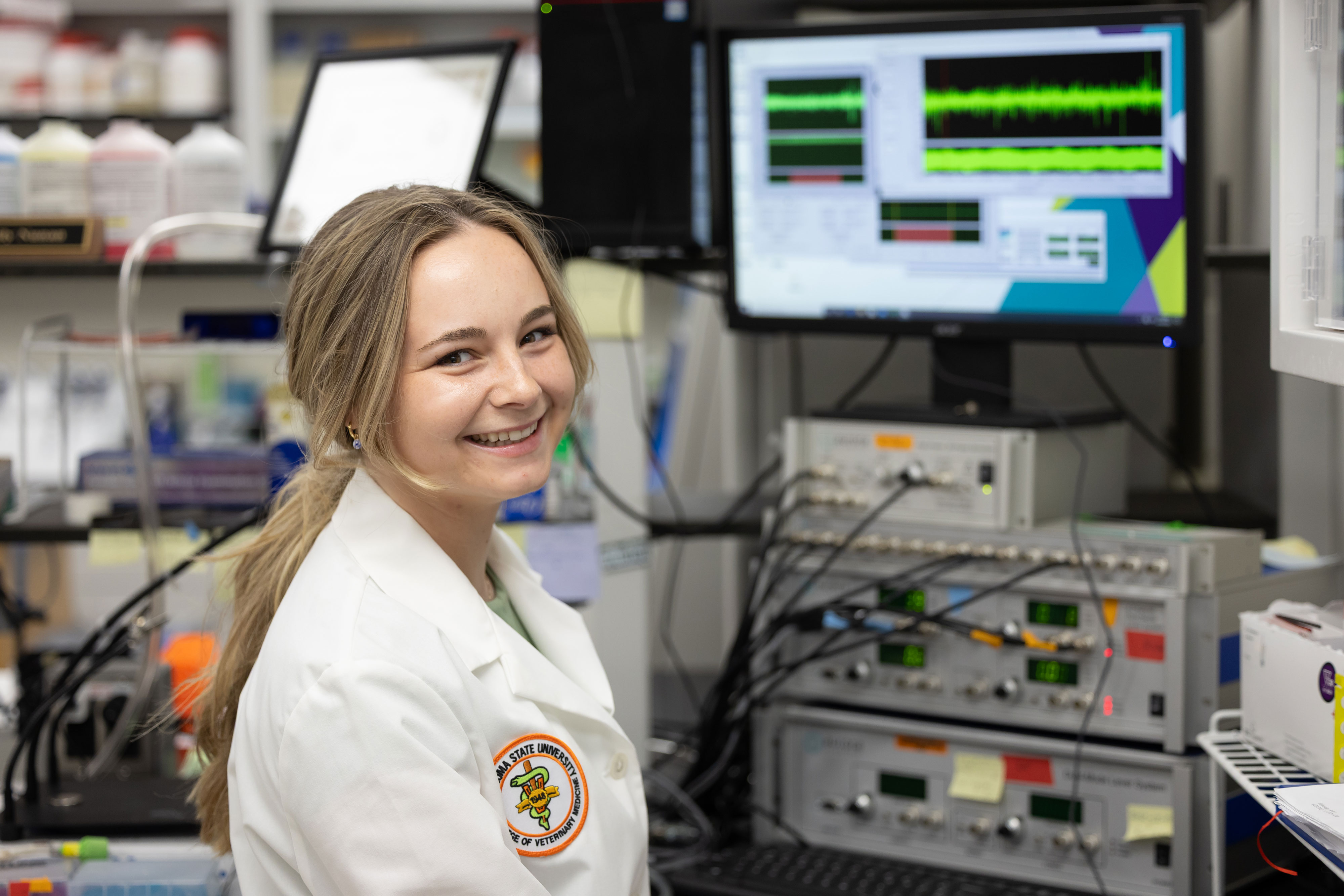
Q: What advice would you give those considering an undergraduate research opportunity?
A: The advice I would give to undergraduate research students seeking to start a project is don't be afraid to make mistakes! Science is an ever-changing field of study with new information being discovered every day. If there is a specific area that you are interested in, go for it.
Q: Why did you choose OSU?
A: I have been a Cowboy my entire life. I am a double legacy from OSU and was even born in Stillwater. Choosing to go to OSU was a no-brainer for me as Oklahoma State has been home for me for as long as I can remember.
Q: What has been your favorite part of OSU so far?
A: My favorite part of OSU has been meeting all of the amazing people in college. Stillwater has been one of the friendliest places on earth I have experienced, and everyone is more than willing to lend a helping hand or a smile. Each day I'm on campus I get to meet so many new and kind people who have quickly become a part of my community.
Q: What are your future goals?
A: My future goals are to graduate with dual degrees in animal science and biochemistry and molecular biology. I then want to apply to medical school and hope to study endocrinology. My end goal is to work with the native tribes of Oklahoma providing endocrinology and diabetes care for Native Americans in Oklahoma.
Olivia Morgan
Q: What is the focus of your NRS research project?
A: I examine the mechanism by which PtsN, a component of the nitrogen-related phosphotransferase system, is impacting the regulation of the type three secretion system (T3SS) in Pseudomonas aeruginosa. The T3SS is used by bacteria to assemble a molecular apparatus that acts similarly to a hypodermic needle, which it uses to inject toxins into the cytoplasm of host cells. The T3SS aids in establishing and maintaining infections, greatly contributing to its pathogenicity.
Q: How has participating in the NRS program impacted your college experience?
A: Conducting research has completely transformed my college experience. I have completely fallen in love with the project I am working on and conducting research in general. My mentors have been phenomenal and have helped me develop multiple essential lab skills that I know will be useful in my career going forward. I have also grown more confidence in my ability to conduct and communicate about my research. This experience has helped me grow as both a scientist and as a critical thinker, reinforcing my desire to pursue a career in academia.
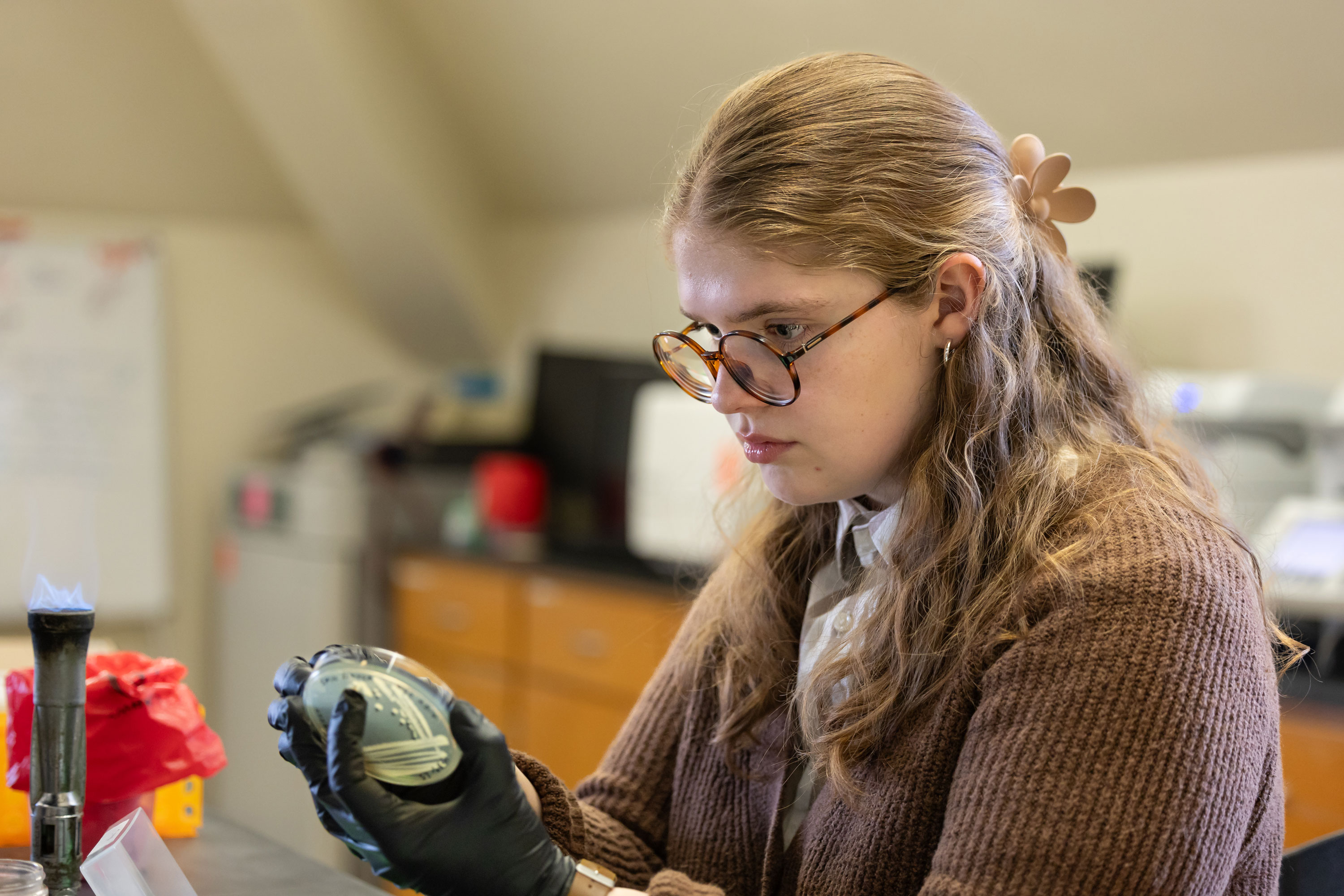
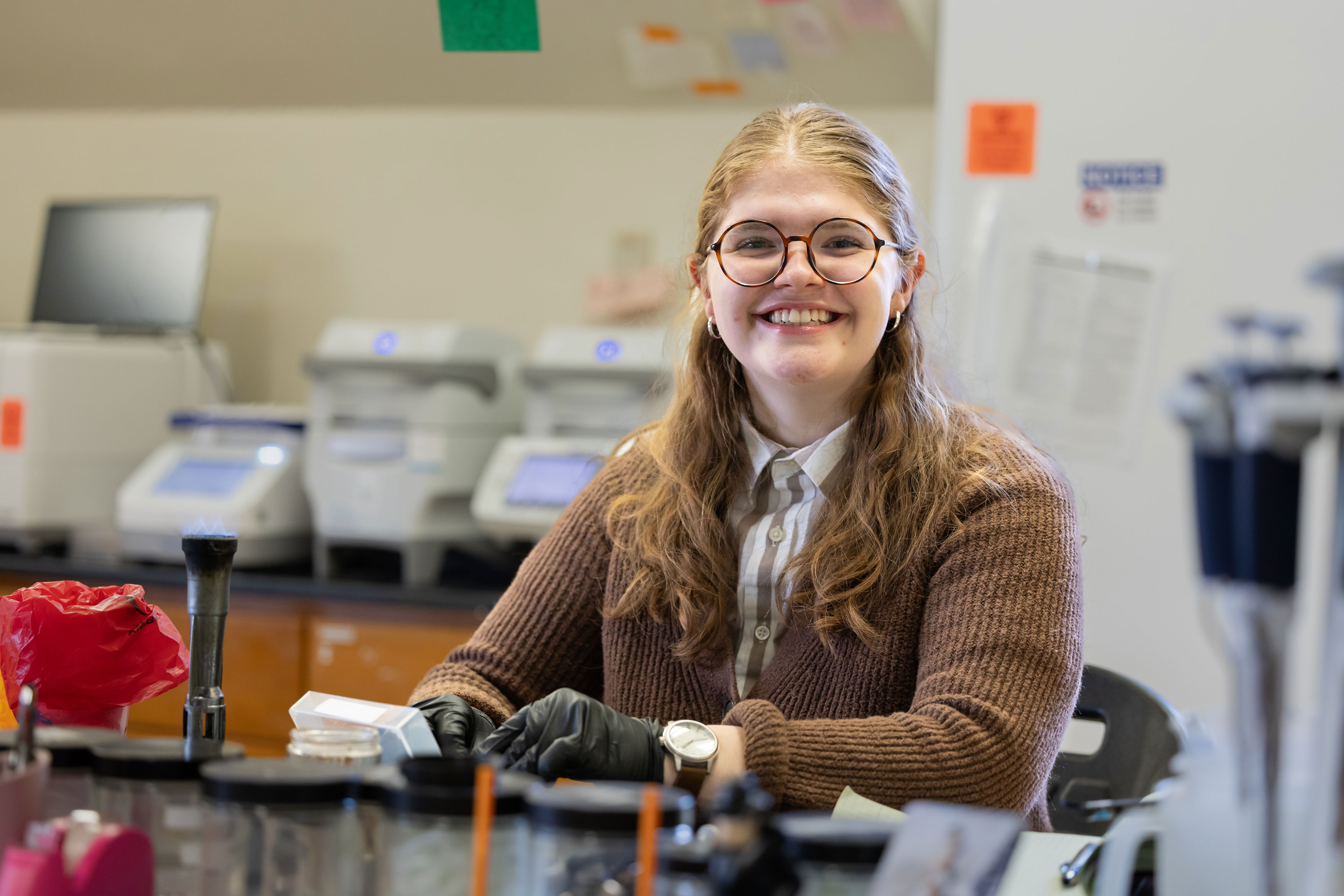
Q: What advice would you give those considering an undergraduate research opportunity?
A: Don’t be afraid to get involved, even if you don’t have prior experience. I started research with zero lab background, and it turned out to be the most rewarding part of my education. Professors know you're there to learn, and they’re often excited to mentor enthusiastic students. Read about the work different professors do, find something you feel passionate about, and reach out to them.
Q: Why did you choose OSU?
A: I have always loved science, and I knew in my decision to pursue higher education that I wanted to spend a lot of time in the laboratory. OSU really stands out for its strong emphasis on research. I knew it would be a place where I could explore my scientific interests, build meaningful connections with fellow students, and learn as much as I could from dedicated and supportive faculty.
Q: What has been your most memorable part of OSU so far?
A: The most memorable part of OSU for me has been the valuable relationships I have built. I have met my closest friends at OSU and am tremendously grateful for all the memories I have built with them. I also treasure all the time I have spent with my lab family.
Q: What are your future goals?
A: After graduating university, I plan to further my education by going to graduate
School. I intend to join a microbiology laboratory and eventually obtain my Ph.D.
I hope to research pathogenic microorganisms and am particularly interested in virulence
mechanisms. My career plans are to conduct microbial research as a professor at a
research-focused institution and remain immersed in the scientific discovery process.
Udhav Ramachandran
Q: What is the focus of your NRS research project?
A: Our research investigates how certain viruses hijack host cell machinery and contribute to cancer development. I focused on defining intrinsically disordered regions (IDRs) of viral proteins — structurally unstable regions that can drive liquid-liquid phase separation (LLPS) in cells — using bioinformatic tools. These assemblies may play a key role in how viruses reprogram host cells for replication and survival, usually to the detriment of normal functions.
Q: How has participating in the NRS program impacted your college experience?
A: The Niblack Research Scholars program offered a substantive and early entry into the practice of research, transforming my undergraduate experience from passive learning to active investigation. It introduced me not only to advanced experimental techniques, but also to the culture and discipline of scientific inquiry. Through mentorship and collaborative scholarship, the program provided a rigorous yet supportive space to develop as a scientist, encouraging intellectual independence and methodological precision.
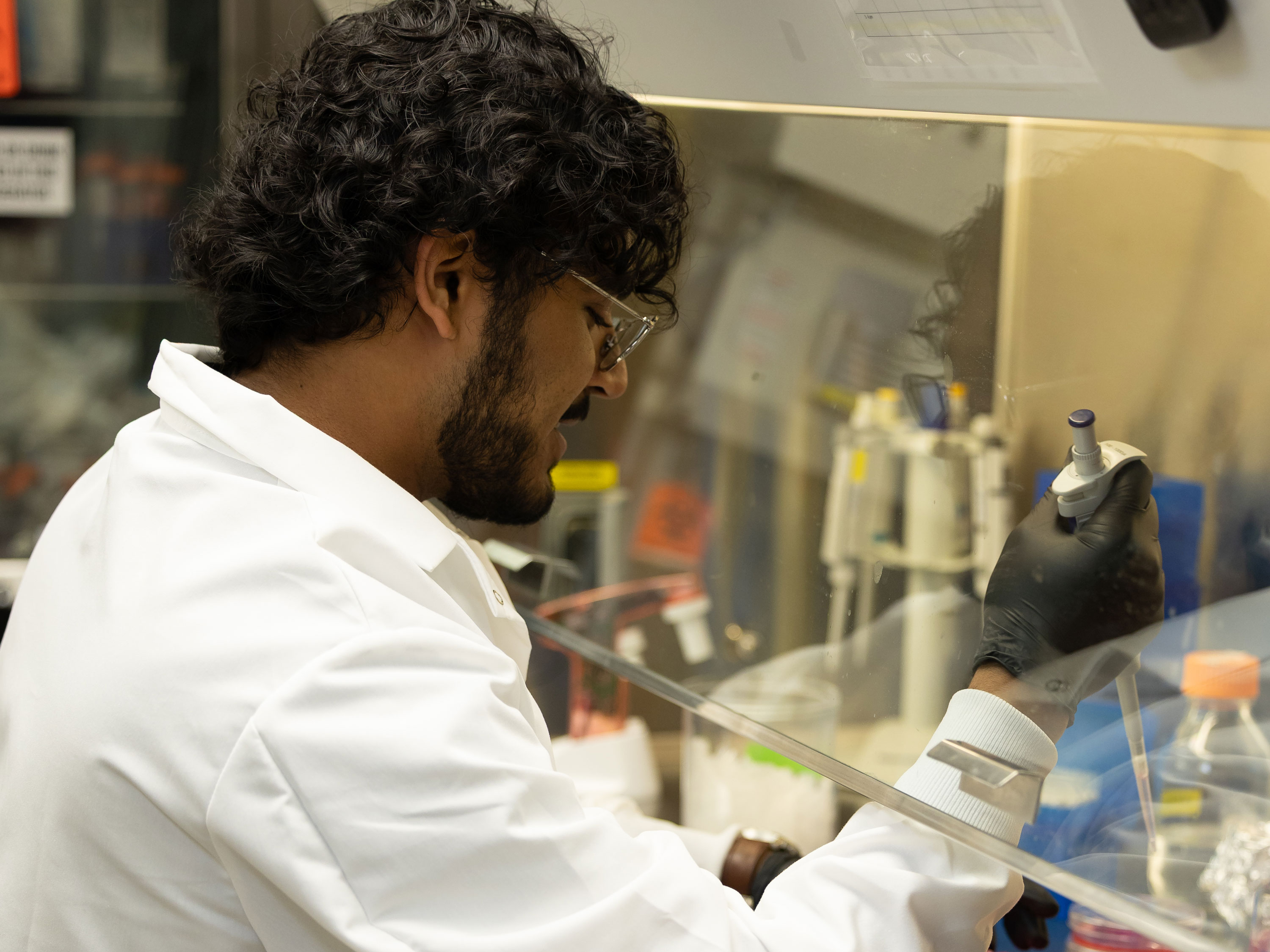
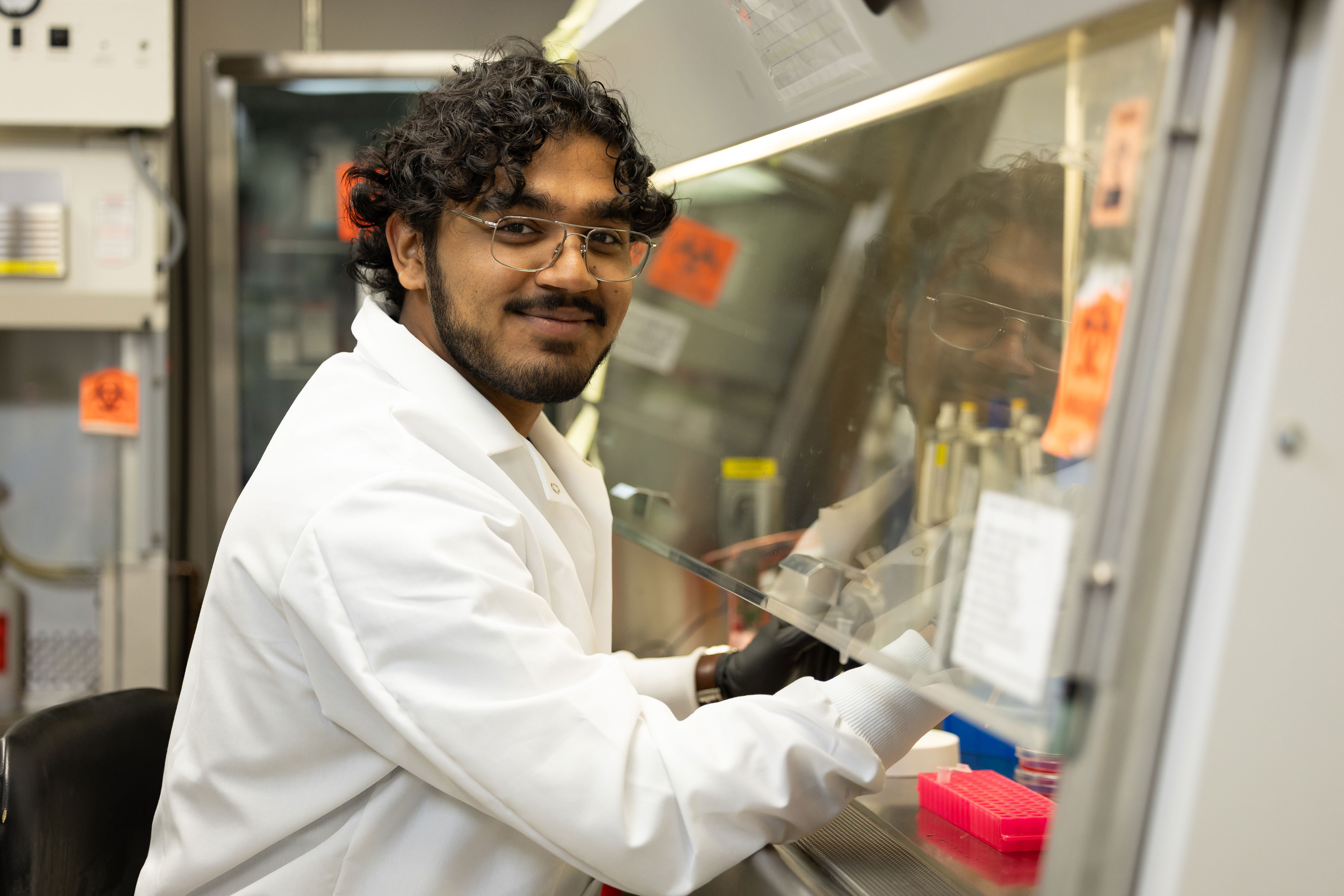
Q: What advice would you give those considering an undergraduate research project/opportunity?
A: Engage early and recognize that uncertainty is integral to the research process. The laboratory is not a site of immediate discovery but of gradual progress — where experiments are optimized, and conclusions are provisional. Learn to read deeply, write down questions that you think outside the lab, and accept that setbacks are instructive, and unavoidable. The most valuable outcome of undergraduate research is not a polished result, but the cultivation of scientific judgment.
Q: Why did you choose OSU?
A: I chose OSU because it provides real access to research opportunities as an undergraduate — something that’s often gatekept at larger or more research-focused institutions. Programs like NRS signaled that students here aren’t just a line on a roster but active participants in discovery. I wanted to be somewhere where I could ask serious scientific questions without having to wait until grad school for someone to listen.
Q: What has been your most memorable part of OSU so far?
A: The most meaningful aspect of my experience at OSU has been the access — both to well-equipped laboratories and to faculty who are genuinely invested in mentoring undergraduates. The infrastructure allows serious research to occur without unnecessary administrative barriers, and the culture encourages intellectual engagement beyond the classroom. The university’s scale strikes a rare balance: large enough to support advanced inquiry, yet small enough to preserve individual focus.
Q: What are your future goals?
A: I hope to pursue a career in research and medicine that addresses the needs of populations often excluded from the benefits of modern health care — particularly those in underdeveloped or geographically isolated regions. My long-term goal is to contribute to the development of affordable, accessible diagnostics and treatments for diseases that are preventable or manageable yet remain fatal due to structural inequities. I find it difficult to think that people continue to die from treatable conditions simply because of where they live. Through translational research, clinical work, and public health engagement, I aim to help bridge the gap between scientific advancement and global access.
